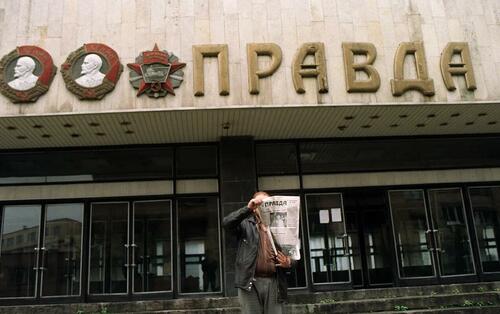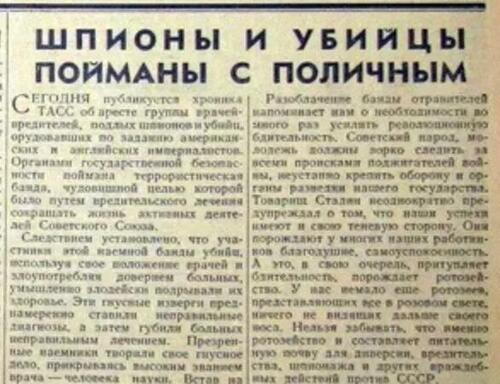Authored by Matt Taibbi via Racket News,
The press watchdog Fairness and Accuracy in Reporting, or FAIR.org, which I read regularly as a young reporter, weighed in on the NPR debate:
One could look at this threat as part of Trump’s general distrust of major media and desire to seek revenge against outlets he believes have been unfair to him… Going after public broadcasters is also a part of the neo-fascist playbook authoritarian leaders around the world are using to clamp down on dissent and keep the public in the dark, all in the name of protecting the people from partisan reporting. That’s largely because strong public media systems and open democracy go hand in hand.
Titled “Cuts to PBS, NPR Part of Authoritarian Playbook,” the above is either satire or written by someone consciously ignoring the history of state media. Yes, Car Talk and the MacNeil/Lehrer report were cool, but outlets like Neues Deustchland, Télé Zaïre, and Tung Padewat more often went “hand in hand” with fingernail factories or firing squads than democracy. It’s bizarre to see Americans trying to whitewash this.
The office of my first full-time reporting job with the Moscow Times was in the Pravda building. I used to spend lunch hours walking through the doors shown in the photo above, beering up in a cafeteria with writers from the sports section of Komsomolskaya Pravda, at the time the Guinness Book record-holder for world’s largest circulation. With over 21 million readers, “Komsomolka” sure as hell qualified as “strong public media,” but hardly went “hand in hand” with democracy. Like the rest of ex-Soviet media, its owed its circulation to decades of forcing insane lies on readers, like cheery dispatches about the “Doctor’s Plot” purges of 1953:
The Russian muckrakers of the 1990s threw themselves into the job like superheroes once they got a whiff of freedom, which in their case usually meant being disentangled from the state. That period, like the lives of many of those folks, didn’t last long. Vladimir Putin sent masked police into the last independent TV station on May 11, 2000, capping less than ten years of quasi-free speech. “Strong state media” remained, but actual journalism vanished.
People who grew up reading the BBC or AFP may imagine a correlation between a state media and democracy, but a more dependable indicator of a free society is whether or not obnoxious private journalism (like the Russian Top Secret, whose editor Artyom Borovik died in a mysterious plane crash) is allowed to proliferate. As for those once-storied European networks, most have now become parodies, operating in concert with multiple official review operations like BBC Verify or the “Trusted Flaggers” of the EU’s Digital Services Act. This layered messaging system essentially guarantees favorable coverage of public policy and is more dangerous than asking the listeners of stations like NPR to pay for media they like.
As anyone who’s read Hate Inc. knows, I was until recently a proponent of public incentives for journalism, which is necessary but hard to fund. The Post Office Act of 1792 charged publishers fractions of normal postage rates. Western expansion was aided by gratis rides on the Pony Express for “newspaper slips,” and the Communications Act of 1934 helped birth broadcast news by requiring licensees of public airwaves to operate in the “public interest, convenience, and necessity.” After the Public Broadcasting Act of 1967 passed, we enjoyed an imperfect system that left room for public and private innovations, from Sesame Street to Radical Chic. Which was great, but how nuts do you have to be to think “strong state media” doesn’t have a dark side? Is the history of this stuff just not being taught?
Loading...

